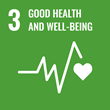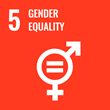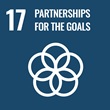Project information
Constructing the Developmental Atlas of Alzheimer’s Disease using Cerebral Organoids and Single-Cell Transcriptomics

- Project Identification
- GA24-12028S
- Project Period
- 1/2024 - 12/2026
- Investor / Pogramme / Project type
-
Czech Science Foundation
- Standard Projects
- MU Faculty or unit
- Faculty of Medicine
The proposed grant aims to investigate the primary cause of Alzheimer’s disease (AD) by studying human pluripotent stem cell-derived neural organoids. Current research on AD has identified pathways commonly found altered in AD brains, such as inflammation, lipid signaling, metabolism, protein folding, or cellular senescence. However, as these alterations are already present in AD patients’ brains, it is virtually impossible to determine if they are the cause or, rather, a consequence of AD. Recently, impaired adult hippocampal neurogenesis has emerged as an important mechanism likely contributing to AD. Interestingly, both animal models and patients’ data strongly suggest that adult hippocampal neurogenesis is severely impaired with the onset of AD. Importantly, our preliminary data also show signs of premature neurodifferentiation in the early stages of neural organoid differentiation compared to non-demented controls. It is, however, unknown what molecular players are triggering this phenotype. Thus, to describe and understand the initiation of AD, the grant proposes to use single-cell sequencing to map the very early stages of the disease. Functional experiments will then be performed to identify potential candidate molecules/molecular pathways for future AD therapy. The results of this research could significantly advance our understanding of AD pathogenesis and provide potential therapeutic targets for this devastating disease.
Sustainable Development Goals
Masaryk University is committed to the UN Sustainable Development Goals, which aim to improve the conditions and quality of life on our planet by 2030.
Publications
Total number of publications: 7
2025
-
Možná asociace amyloidu-β se změnami v elektrické aktivitě cerebrálních organoidů
Year: 2025, type: Conference abstract
2024
-
Neurodegenerácia a elektrická aktivita: analýza metódou multielectrode array
Year: 2024, type: Conference abstract
-
Neurodegeneration and hyperexcitability of the brain tissue
Year: 2024, type: Conference abstract
-
The impact of neurodegeneration on the electrical activity of brain tissue: multielectrode array analysis
Year: 2024, type: Conference abstract
-
UNCOVERING MECHANISMS OF ALZHEIMER’S DISEASE DEVELOPMENT THROUGH IPSC- DERIVED CEREBRAL ORGANOIDS
Year: 2024, type: Conference abstract
-
Využití metody multielectrode array pro studium dopadu neurodegenerace na elektrickou aktivitu cerebrálních organoidů
Year: 2024, type: Appeared in Conference without Proceedings
-
Zmeny elektrickej aktivity podmienené neurodegeneráciou
Year: 2024, type: Conference abstract


